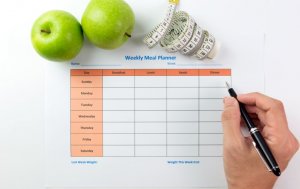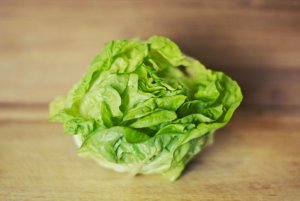What Are Cheat Meals?

Cheat meals are one of the most established concepts within the culture of miracle diets. We are so used to hearing about this notion, that we are now indifferent to the accuracy and explanations to support this weight loss method. In this article we are going to learn more about cheat meals and uncover exactly what they are.
The cheat meal concept refers to the belief that you can eat anything you want, for one day each week. That the reward for your dieting sacrifice is just around the corner. Your prayers have been heard and the day has finally come. Today is your cheat day, no rules, no restrictions. Today you can stuff your face. But in reality, there’s no bigger trap than this one.
What are cheat meals about?

This is the plan: we’re putting you on a very restrictive diet that will keep you in a continuous struggle with your subconscious. A diet in which you’ll only eat a few lettuce leaves, with seasoning, and not much more. But your sacrifice will be rewarded with cheat meals.
One day a week, usually on weekends (so you can use your free time to eat) you can go overboard, eat whatever you want, and in the amounts you want. Because after all, you practically don’t eat anything for the rest of the week.
To be clear, it’s a concept based upon “coming out even” with the food we eat. During the week you eat less than what you should eat, but you compensate for this by spending a full day of eating beyond your capabilities. An entire day to satisfy your appetite.
A statement based on a false hypothesis
Advocates base these theories on very interesting arguments, and they apply the realities to their own advantage. Cheat meal supporters like to say that when we go on a diet, our body will stabilize itself.
Our body recognizes that it’s receiving less food than its accustomed to and starts to become stressed. You lose weight fast because your body doesn’t have time to react to the new situation, but the time will come when it’s had enough.
That’s why sometimes, we tend to experience a weight loss plateau when we go on hypo-caloric diets. When this happens, we experience despair and lose our motivation. We wave a white flag. We give up. That’s the situation that advocates want to use, in order to justify cheat meals. Your body is continuously under stress because it does not have the opportunity to get used to the diet situation.
Let the hunger games begin

If we think we’re going to win the battle against excess weight and obesity by cheating, we’re in trouble. You can’t achieve being healthy and feeling comfortable about the way you look by limiting yourself for six days, indulging for one day, and maintaining this up for three to six months. Remember, after a dictatorship comes anarchy.
Losing 22 pounds in four months by starving ourselves, and then satisfying every other craving we have, doesn’t provide us with any benefits. We’re so used to science making our life easier, that we would buy into almost any product to get the body that publicity sells to us. If only we could snap our fingers and make it happen!
What about sports?
We take pride in saying that sport means dedication, perseverance and passion, and that this is the only way to achieve our goals. What makes you think cheating will get you there too? Our health depends on a constant balance between physical activity and an adequate diet.
And even though it may seem incredible, education is the key to all of this. Nutritional education raises awareness about the need for a healthy diet. Without cheats. No schedules. No limits. With dedication, perseverance and passion.
Don’t misunderstand, we don’t mean that you should demonize foods or diets. But instead of listening to a fad diet plan, you should learn to eat a healthy diet. Make this an everyday practice and you will even start to enjoy eating healthy foods too.
But if you do have a moment of weakness with a serving of squid or you’re tempted by a chocolate cake, don’t beat yourself up over it. There’s nothing wrong with giving in to your cravings occasionally. Cheating only happens when cheat meals become a guideline for your diet and you refuse to recognize it, because you can only think about the moments when you’re hungry.
Eating healthy doesn’t mean starving, no matter how hard anyone tries to make us believe it does.
Cheat meals are one of the most established concepts within the culture of miracle diets. We are so used to hearing about this notion, that we are now indifferent to the accuracy and explanations to support this weight loss method. In this article we are going to learn more about cheat meals and uncover exactly what they are.
The cheat meal concept refers to the belief that you can eat anything you want, for one day each week. That the reward for your dieting sacrifice is just around the corner. Your prayers have been heard and the day has finally come. Today is your cheat day, no rules, no restrictions. Today you can stuff your face. But in reality, there’s no bigger trap than this one.
What are cheat meals about?

This is the plan: we’re putting you on a very restrictive diet that will keep you in a continuous struggle with your subconscious. A diet in which you’ll only eat a few lettuce leaves, with seasoning, and not much more. But your sacrifice will be rewarded with cheat meals.
One day a week, usually on weekends (so you can use your free time to eat) you can go overboard, eat whatever you want, and in the amounts you want. Because after all, you practically don’t eat anything for the rest of the week.
To be clear, it’s a concept based upon “coming out even” with the food we eat. During the week you eat less than what you should eat, but you compensate for this by spending a full day of eating beyond your capabilities. An entire day to satisfy your appetite.
A statement based on a false hypothesis
Advocates base these theories on very interesting arguments, and they apply the realities to their own advantage. Cheat meal supporters like to say that when we go on a diet, our body will stabilize itself.
Our body recognizes that it’s receiving less food than its accustomed to and starts to become stressed. You lose weight fast because your body doesn’t have time to react to the new situation, but the time will come when it’s had enough.
That’s why sometimes, we tend to experience a weight loss plateau when we go on hypo-caloric diets. When this happens, we experience despair and lose our motivation. We wave a white flag. We give up. That’s the situation that advocates want to use, in order to justify cheat meals. Your body is continuously under stress because it does not have the opportunity to get used to the diet situation.
Let the hunger games begin

If we think we’re going to win the battle against excess weight and obesity by cheating, we’re in trouble. You can’t achieve being healthy and feeling comfortable about the way you look by limiting yourself for six days, indulging for one day, and maintaining this up for three to six months. Remember, after a dictatorship comes anarchy.
Losing 22 pounds in four months by starving ourselves, and then satisfying every other craving we have, doesn’t provide us with any benefits. We’re so used to science making our life easier, that we would buy into almost any product to get the body that publicity sells to us. If only we could snap our fingers and make it happen!
What about sports?
We take pride in saying that sport means dedication, perseverance and passion, and that this is the only way to achieve our goals. What makes you think cheating will get you there too? Our health depends on a constant balance between physical activity and an adequate diet.
And even though it may seem incredible, education is the key to all of this. Nutritional education raises awareness about the need for a healthy diet. Without cheats. No schedules. No limits. With dedication, perseverance and passion.
Don’t misunderstand, we don’t mean that you should demonize foods or diets. But instead of listening to a fad diet plan, you should learn to eat a healthy diet. Make this an everyday practice and you will even start to enjoy eating healthy foods too.
But if you do have a moment of weakness with a serving of squid or you’re tempted by a chocolate cake, don’t beat yourself up over it. There’s nothing wrong with giving in to your cravings occasionally. Cheating only happens when cheat meals become a guideline for your diet and you refuse to recognize it, because you can only think about the moments when you’re hungry.
Eating healthy doesn’t mean starving, no matter how hard anyone tries to make us believe it does.
All cited sources were thoroughly reviewed by our team to ensure their quality, reliability, currency, and validity. The bibliography of this article was considered reliable and of academic or scientific accuracy.
- Lancho, M. C. P. (2007). Alimentación y Educación Nutricional en la Adolescencia. Trastornos de la conducta alimentaria, 6, 600–634. https://dialnet.unirioja.es/servlet/articulo?codigo=2480142
- López Gómez, J. J. (2019). Evaluación del efecto de una dieta hipocalórica modificada en pacientes obesos con artropatía crónica sobre el peso: factores de riesgo cardiovascular y marcadores de remodelado óseo. Universidad de Valladolid.
This text is provided for informational purposes only and does not replace consultation with a professional. If in doubt, consult your specialist.








